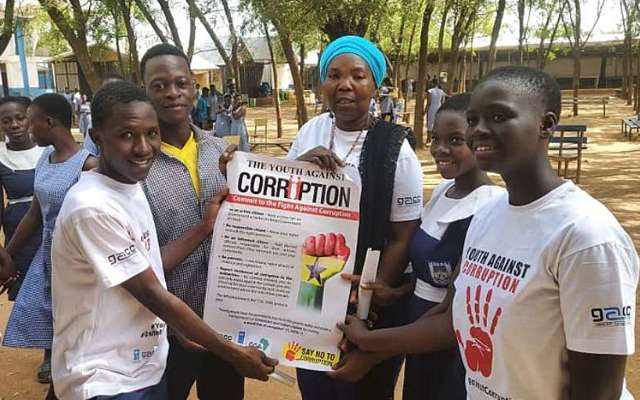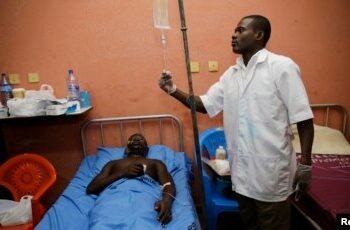Ghana has joined the global community in observing the 2024 International Anti-Corruption Day, an initiative led by the United Nations Office on Drugs and Crime (UNODC) to spotlight the pervasive impact of corruption on societies.
The day aims to raise public awareness about the critical role of the United Nations Convention against Corruption (UNCAC) in combating and preventing corruption worldwide.
In a statement, the Ghana Integrity Initiative (GII) emphasized that Ghana’s participation in the commemoration underscores its commitment to advancing transparency, accountability, and good governance as fundamental pillars for sustainable development and social justice.
“The theme for the year’s commemoration is ‘Uniting with Youth Against Corruption: Shaping Tomorrow’s Integrity’. According to the UNODC, the theme is intended to highlight young people’s vital role in the fight against corruption.
“The theme was also chosen. seamlessly fit into the eleventh session of the Conference of the States Parties (CoSP11) to the United Nations Convention against Corruption in Doha, Qatar in 2025. At the CoSP11 young people will be expected to directly appeal to world leaders, urging them to support a future where they can thrive free from corruption”.
Ghana Integrity Initiative (GII)
The Ghana Integrity Initiative (GII) further highlighted that this year’s commemoration aligns with Ghana’s 2024 general elections, a period marked by the formulation of social contracts on youth engagement and anti-corruption, among other key policy issues.

GII indicated that notably, the incoming NDC administration has proposed several anti-corruption measures directly impacting the youth.
According to the anti-corruption body, these measures include a review of the Public Financial Management Act, 2016 (Act 921), and the Public Procurement Act, 2003 (as amended by Act 914).
The aim is to curb conflicts of interest and prevent insider dealings by politically exposed persons in the award of contracts. “[The incoming administration pledged to] Strengthen and enforce financial management practices and transactions to reduce corruption in the sports sector”.
GII Urges Youth-Centered Reforms in Anti-Corruption Fight
The Ghana Integrity Initiative (GII) noted that the incoming administration has proposed a review of the Computerised School Selection and Placement System (CSSPS) to address corruption in school placements and ensure a merit-based process.
In total, the administration made 19 anti-corruption pledges, with 16 having an indirect impact on the youth and three directly affecting them, according to GII.
GII also pointed out that in the 2021 Population Census conducted by the Ghana Statistical Service (GSS), children aged 0-14 years make up 35% of the population, while young people aged 15-35 years account for 38%.

“Ghana’s population is said to be youthful with about 57% of the population under the age of 25 years, yet very few are represented or play any role in decision-making or specifically in the fight against corruption. Therefore, there is a need for a conscious effort to define roles and mobilize the youth around the defined role in the fight against corruption.
“The opportunity to actualize youth involvement in the fight against corruption is presented through the development of the second National Anti-Corruption Action Plan (NACAP 2)”.
Ghana Integrity Initiative (GII)
The anti-graft body emphasized the need to prioritize youth engagement to nurture a generation of anti-corruption change agents and champions.
GII also called on stakeholders to create avenues for youth participation in anti-corruption initiatives, enabling young people to amplify their voices and hold the government accountable for its anti-corruption promises. “Finally, Gll wishes to state that fighting corruption with young people is crucial if the world is going to make any real progress”.
GII thus called on the public to pledge their commitment to fostering a society free from corruption. It emphasized the need for transparency, responsibility, accountability, integrity, and openness to serve as the fundamental principles guiding national development.
READ ALSO: Starmer’s Gulf Tour Sparks Rights Debate, Trade Talks





















